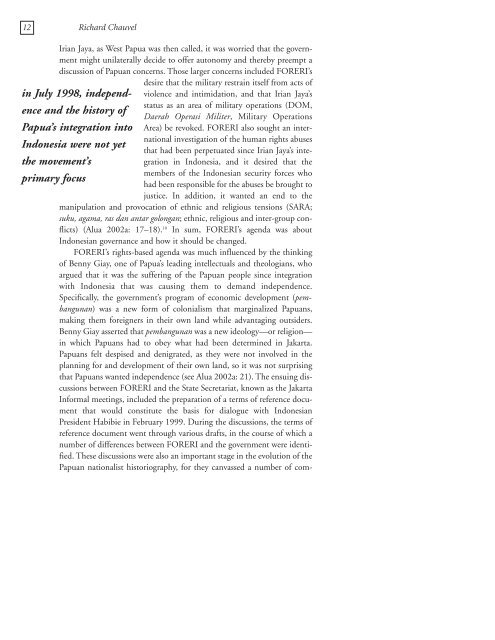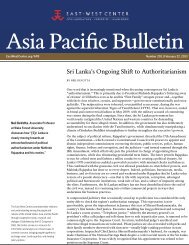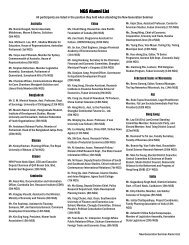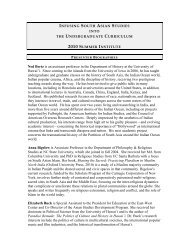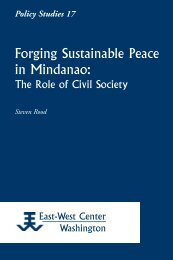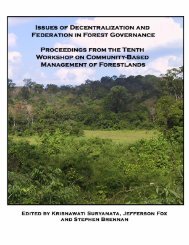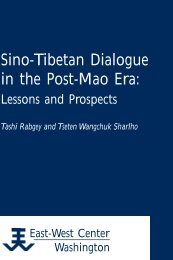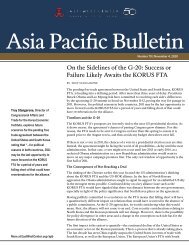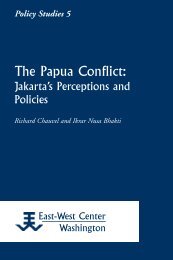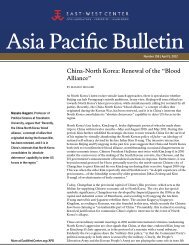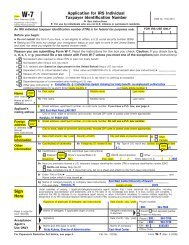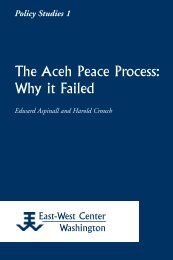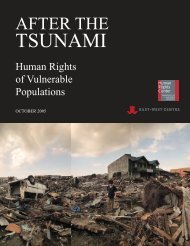Constructing Papuan Nationalism: History, Ethnicity ... - ScholarSpace
Constructing Papuan Nationalism: History, Ethnicity ... - ScholarSpace
Constructing Papuan Nationalism: History, Ethnicity ... - ScholarSpace
- No tags were found...
You also want an ePaper? Increase the reach of your titles
YUMPU automatically turns print PDFs into web optimized ePapers that Google loves.
12 Richard ChauvelIrian Jaya, as West Papua was then called, it was worried that the governmentmight unilaterally decide to offer autonomy and thereby preempt adiscussion of <strong>Papuan</strong> concerns. Those larger concerns included FORERI’sdesire that the military restrain itself from acts ofviolence and intimidation, and that Irian Jaya’sstatus as an area of military operations (DOM,Daerah Operasi Militer, Military OperationsArea) be revoked. FORERI also sought an internationalinvestigation of the human rights abusesthat had been perpetuated since Irian Jaya’s integrationin Indonesia, and it desired that themembers of the Indonesian security forces whohad been responsible for the abuses be brought tojustice. In addition, it wanted an end to themanipulation and provocation of ethnic and religious tensions (SARA;suku, agama, ras dan antar golongan; ethnic, religious and inter-group conflicts)(Alua 2002a: 17–18). 10 In sum, FORERI’s agenda was aboutIndonesian governance and how it should be changed.FORERI’s rights-based agenda was much influenced by the thinkingof Benny Giay, one of Papua’s leading intellectuals and theologians, whoargued that it was the suffering of the <strong>Papuan</strong> people since integrationwith Indonesia that was causing them to demand independence.Specifically, the government’s program of economic development (pembangunan)was a new form of colonialism that marginalized <strong>Papuan</strong>s,making them foreigners in their own land while advantaging outsiders.Benny Giay asserted that pembangunan was a new ideology—or religion—in which <strong>Papuan</strong>s had to obey what had been determined in Jakarta.<strong>Papuan</strong>s felt despised and denigrated, as they were not involved in theplanning for and development of their own land, so it was not surprisingthat <strong>Papuan</strong>s wanted independence (see Alua 2002a: 21). The ensuing discussionsbetween FORERI and the State Secretariat, known as the JakartaInformal meetings, included the preparation of a terms of reference documentthat would constitute the basis for dialogue with IndonesianPresident Habibie in February 1999. During the discussions, the terms ofreference document went through various drafts, in the course of which anumber of differences between FORERI and the government were identified.These discussions were also an important stage in the evolution of the<strong>Papuan</strong> nationalist historiography, for they canvassed a number of cominJuly 1998, independenceand the history ofPapua’s integration intoIndonesia were not yetthe movement’sprimary focus


